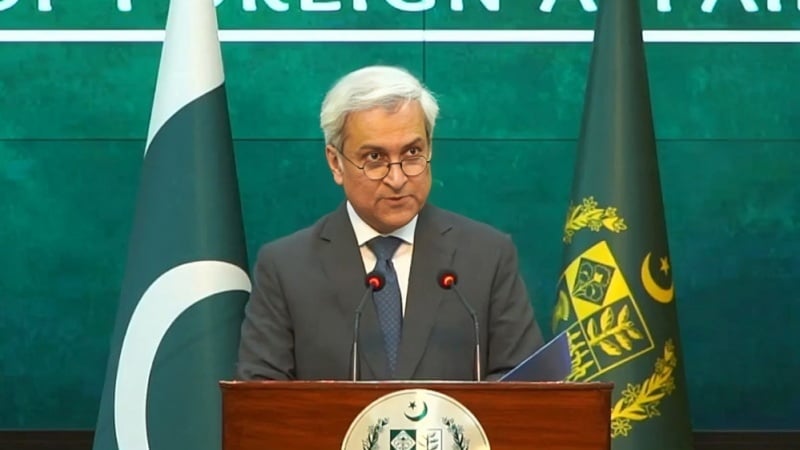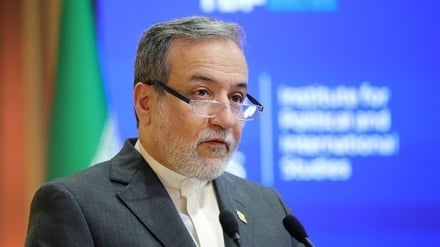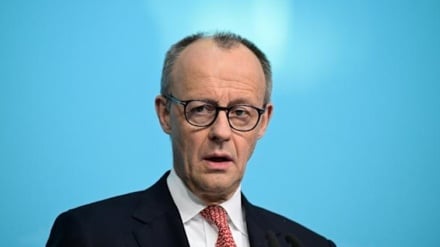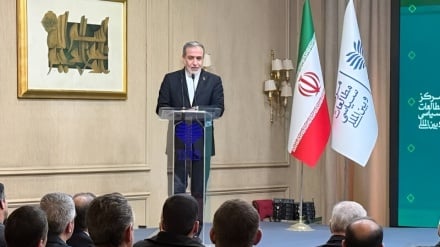Does Pakistan support Iran’s peaceful nuclear activities?
-

Muhammad Tahir Andarabi, spokesperson for Pakistan’s Ministry of Foreign Affairs
Pars Today – A spokesperson for Pakistan’s Ministry of Foreign Affairs and a prominent think tank in the country have expressed their support for Iran’s peaceful nuclear activities.
Muhammad Tahir Andarabi, spokesperson for Pakistan’s Ministry of Foreign Affairs, emphasized his country’s principled stance against provocative and anti-diplomatic actions regarding Iran’s nuclear issue. He stated that Islamabad supports Tehran’s right to uranium enrichment, the revival of the JCPOA, and UN Security Council Resolution 2231.
Speaking at his weekly press briefing in Islamabad on Friday, Andarabi added that Pakistan had previously opposed any foreign military action against Iran’s nuclear facilities and reiterated its position against any confrontation with Tehran or anti-diplomatic approaches.
He added that Pakistan supported recent United Nations Security Council resolutions concerning Resolution 2231, as well as another resolution proposed by South Korea regarding the continuation of Iran’s sanctions relief. Pakistan believes that a confrontational and sanction-based approach should not be adopted to resolve this issue.
The spokesperson emphasized that his country supports the Islamic Republic of Iran’s right to uranium enrichment and its commitments in accordance with international norms.
Additionally, a group of military figures and experts on nuclear non-proliferation, during a roundtable titled “Iran’s Rights and Obligations under the Nuclear Non-Proliferation Regime” hosted by the Center for Aerospace and Security Studies (CASS) affiliated with the Pakistan Air Force in Lahore, warned about the consequences of aggression by the Israeli regime and the United States against the Islamic Republic of Iran. They emphasized that Iran has never violated its commitments under the NPT and has only highlighted the gaps and shortcomings within the treaty.
Pakistan’s support for Iran’s peaceful nuclear activities can be viewed within the framework of the two countries’ friendly relations and shared interests. As a Muslim country and Iran’s eastern neighbor, Pakistan has consistently sought to defend Iran’s position on the peaceful use of nuclear energy at regional and international levels. This support stems from multiple factors rooted in Pakistan’s foreign policy, energy needs, and security and economic considerations.
The first reason is the principle of national sovereignty in using nuclear technology for peaceful purposes. Iran is a member of the Nuclear Non-Proliferation Treaty (NPT) and, under this treaty, has the right to use nuclear energy for electricity generation, scientific research, and medical applications. Pakistan, as a country that has itself developed a nuclear program, fully understands that depriving a nation of this legitimate right is discriminatory and contrary to the principles of international justice.
The second reason is regional energy needs. Both Iran and Pakistan face significant challenges in ensuring sustainable energy supply. Supporting Iran’s peaceful nuclear program can pave the way for joint energy cooperation. Projects such as the Iran–Pakistan gas pipeline demonstrate that the two countries aim to establish shared energy infrastructure, and the development of Iran’s nuclear technology could serve as a complementary element for these collaborations.
The third reason is political and security considerations. By supporting Iran in the nuclear field, Pakistan sends a clear message to global powers that regional countries should have the right to determine their own destiny. This support also strengthens the positions of Iran and Pakistan in international organizations and Islamic forums, while reinforcing unity among Muslim countries in the face of external pressures.
The fourth reason is the historical and cultural ties between the two nations. Iran and Pakistan share deep religious, cultural, and linguistic bonds. Supporting Iran’s peaceful nuclear program is a symbol of this solidarity and mutual trust, which can also strengthen bilateral relations in other areas such as trade, education, and technology.
In conclusion, Pakistan’s support for Iran’s peaceful nuclear activities is not only grounded in the principles of international law and regional energy needs but also reflects the political and cultural convergence between the two neighboring Muslim countries. This support can serve as a model for regional cooperation and contribute to stability and sustainable development in South and West Asia.


